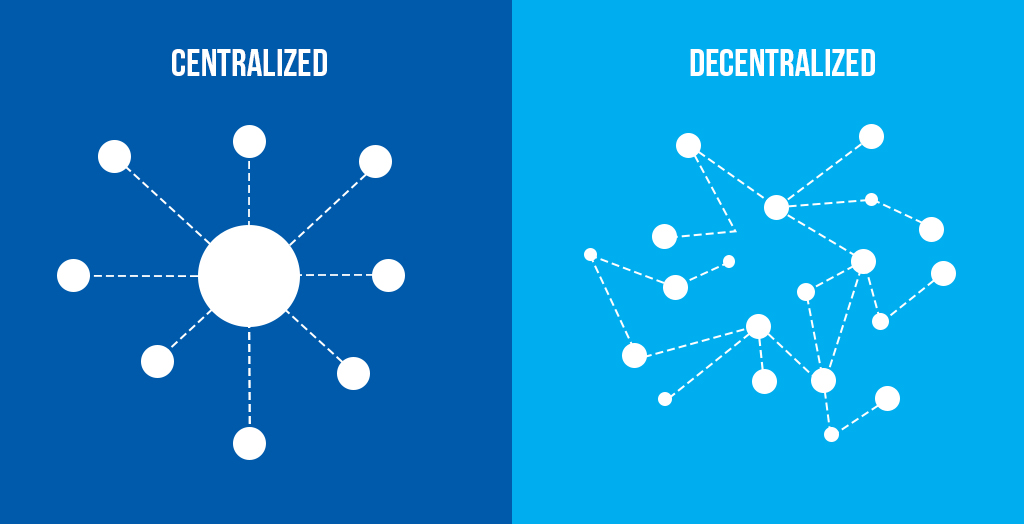The Role of DePIN in Protecting User Privacy. In the digital age, user privacy has become a paramount concern. With increasing amounts of personal data being shared and stored online, the risks of data breaches and misuse have grown exponentially. Enter DePIN (Decentralized Physical Infrastructure Network), a revolutionary approach designed to safeguard user privacy through decentralized technology. This blog explores the role of DePIN in protecting user privacy, highlighting its mechanisms, benefits, real-world applications, and future prospects.
Understanding DePIN
DePIN, or Decentralized Physical Infrastructure Network, is a cutting-edge solution that leverages blockchain technology to enhance user privacy. Unlike traditional privacy solutions that rely on centralized servers, DePIN distributes data across a decentralized network. This approach reduces the risk of single points of failure and ensures that user data is protected by multiple layers of security.
How DePIN Differs from Traditional Privacy Solutions
Traditional privacy solutions often involve storing data on centralized servers, making them vulnerable to hacking, data breaches, and unauthorized access. DePIN, on the other hand, decentralizes data storage and management. By using blockchain technology, DePIN ensures that data is encrypted, distributed, and accessible only to authorized users. This decentralization enhances security and reduces the risk of data being compromised.
The Importance of User Privacy
In today’s digital landscape, user privacy is more important than ever. Personal data, including financial information, medical records, and social interactions, is increasingly being targeted by cybercriminals. Privacy breaches can lead to identity theft, financial loss, and severe damage to individuals’ reputations.
Risks and Challenges in the Current Digital Landscape
The current digital environment is fraught with risks. Centralized databases are prime targets for cyberattacks, and the misuse of personal data by corporations and governments further exacerbates privacy concerns. With data breaches becoming more frequent and sophisticated, there is an urgent need for robust privacy protection mechanisms.
Examples of Privacy Breaches and Their Impact
High-profile data breaches, such as the Equifax hack and the Cambridge Analytica scandal, have highlighted the vulnerabilities in traditional privacy systems. These incidents exposed sensitive information of millions of individuals, leading to widespread public outcry and significant financial and reputational damage for the affected companies. Such breaches underscore the necessity of adopting more secure and decentralized privacy solutions like DePIN.
How DePIN Works?
DePIN operates on a decentralized network, utilizing blockchain technology to protect user data. Here’s a closer look at its core components and mechanisms.
Core Components and Architecture of DePIN
- Decentralized Nodes: Data is stored across multiple nodes in the network, eliminating single points of failure.
- Encryption: User data is encrypted before being stored, ensuring that even if data is intercepted, it cannot be read without the proper decryption key.
- Smart Contracts: Automated agreements enforce privacy policies and control access to data, ensuring that only authorized users can access sensitive information.
- Consensus Mechanisms: These mechanisms ensure that all nodes in the network agree on the validity of transactions, preventing unauthorized changes to the data.
Mechanisms Employed to Protect User Data
- Data Fragmentation: Data is divided into smaller pieces and distributed across the network, making it difficult for hackers to access complete information.
- Access Control: Users have complete control over who can access their data, and permissions can be revoked at any time.
- Anonymity and Pseudonymity: Users can interact with the network anonymously or use pseudonyms, further protecting their identity.
Benefits of DePIN for User Privacy
The decentralized nature of DePIN offers several significant advantages for user privacy.
Enhanced Security Measures
DePIN’s decentralized architecture ensures that data is not stored in a single location, reducing the risk of large-scale data breaches. The use of advanced encryption techniques adds an extra layer of security, making it extremely difficult for unauthorized parties to access sensitive information.
User Control Over Personal Data
One of the key benefits of DePIN is that it gives users complete control over their personal data. Users can decide who can access their data and under what conditions. This empowerment contrasts sharply with traditional systems, where users often have little to no control over their information once it is shared.
Transparency and Trust in Data Handling
DePIN’s use of blockchain technology ensures transparency in data handling. Every action taken on the network is recorded on an immutable ledger, allowing users to see exactly how their data is being used. This transparency builds trust, as users can verify that their privacy is being respected.
Investing in SRP Coin is a strategic move towards embracing the decentralized future of DePIN. By securing your digital assets, you can unlock unparalleled rewards.
Real-World Applications of DePIN
DePIN’s potential extends across various industries, offering enhanced privacy and security solutions.
Case Studies or Examples of DePIN in Action
- Healthcare: DePIN can secure patient records, ensuring that sensitive medical information is accessible only to authorized healthcare providers. This protects patient privacy and complies with regulations like HIPAA.
- Finance: Financial institutions can use DePIN to safeguard customer data, preventing fraud and unauthorized transactions. Decentralized ledgers can also streamline audits and compliance checks.
- Social Media: Social media platforms can adopt DePIN to protect user data from breaches and misuse. Users can control who accesses their information, enhancing privacy and trust.
Industries Benefiting from DePIN
- Social Media: Enhances user privacy and prevents data misuse.
- Government: Secures sensitive data and ensures transparent handling of citizen information.
Challenges and Limitations
While DePIN offers numerous benefits, it also faces challenges that need to be addressed for widespread adoption.
Potential Obstacles in Implementing DePIN
- Scalability: As the network grows, maintaining efficiency and speed can be challenging. Solutions such as sharding and off-chain transactions are being explored to address scalability issues.
- Interoperability: Ensuring that DePIN can work seamlessly with existing systems and other blockchain networks is crucial for its success.
- Regulatory Compliance: Navigating the complex landscape of privacy regulations across different jurisdictions can be challenging for DePIN networks.
Addressing Scalability and Interoperability Issues
Innovations like sharding, where the network is divided into smaller, manageable parts, and cross-chain compatibility solutions are being developed to enhance DePIN’s scalability and interoperability. Collaboration with regulatory bodies is also essential to ensure compliance and build trust in DePIN solutions.
Future Prospects of DePIN
DePIN is poised to revolutionize digital privacy, with ongoing innovations and developments paving the way for a more secure future.
Innovations and Advancements in DePIN Technology
- Advanced Encryption Techniques: New encryption methods are being developed to enhance data security further.
- AI and Machine Learning: Integrating AI can improve threat detection and response, making DePIN networks more resilient.
- Quantum-Resistant Cryptography: Research into quantum-resistant cryptographic techniques aims to future-proof DePIN against potential quantum computing threats.
Predictions for the Future Role of DePIN in User Privacy
As awareness of digital privacy grows, more industries are likely to adopt DePIN solutions. DePIN has the potential to become the standard for data privacy, offering individuals and organizations unparalleled security and control over their information. The integration of DePIN with other emerging technologies, such as the Internet of Things (IoT) and artificial intelligence (AI), will further expand its applications and benefits.
Conclusion
In conclusion, The Role of DePIN in Protecting User Privacy offers a robust, decentralized solution to the growing concerns of data breaches and misuse. By leveraging advanced technologies and empowering users with control over their data, DePIN is setting the stage for a more secure and private digital future. As we look ahead, the continued development and adoption of DePIN will be crucial in protecting user privacy and building trust in the digital ecosystem.

 China
China Russia
Russia India
India









